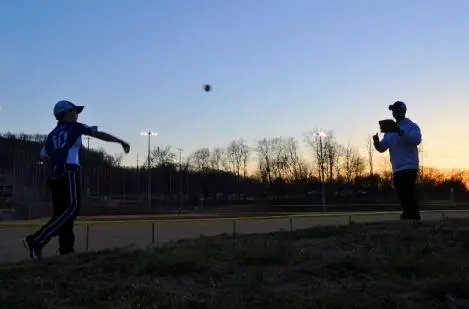
Nov 20, 2017 • 5 min read
Balance: The Foundation of Success
Posted in:
The 2017 World Series was balanced. The Houston Astros and Los Angeles Dodgers were neck and neck in every game, making for a very exciting series to watch and learn from. But if one team had totally outmatched the other, we wouldn’t be calling it one of the best World Series ever. It was as if both teams made each other better by continually raising the bar.

That’s what competition is all about: two equally matched teams, each tipping the balance in their favor–if only by one run.
But balance isn’t just physical; it’s a way of living one’s life. Striking a healthy balance in youth sports has much to do with perspective and good judgement. When my son was six, his baseball team won every game with scores like 20 to one and 30 to three. Because this rec team was unfairly stacked with the most talented athletes, there was absolutely no competition; any type of learning life lessons from failure was unfortunately put off until a later date. And how do you think the inexperienced six-year-old kids on the other teams felt? In this unbalanced situation, created by adults with poor judgement and lack of perspective, nobody won.
When winning is over-emphasized in youth sports, imbalance is usually the result.
In youth sports, there are often two philosophies when it comes to winning: winning is unimportant or winning is the only thing. Neither of these extremes represents a balanced approach. Winning is important, because without the desire to win, it’s no longer sport and any opportunity to learn life lessons through competition will be lost. But when a coach’s sole desire is winning, kids are the losers. Overtraining, playing too many games and pressure to perform beyond their ability results in burnout and over-use injuries.
The rising popularity of travel teams has produced many unbalanced situations. They are not all created equal so research is important. When managed responsibly, however, they can be a good venue for kids whose interest level matches the commitment. Being on a travel team is not an automatic stepping stone to the future. If you think it is, you may be disappointed. There must be a proper balance of playing time and personal training on skill development for progress to happen, whether playing travel ball or not.
The only stepping stone to something bigger lies within one’s self. There must be a self-motivating notion that drives a player forward, no matter what.
Physical Balance:
 Mastering one’s physical balance is the first step in developing athleticism. In martial arts, the code of karate states: “A person’s unbalance is the same as a weight.” Trying to execute a difficult athletic movement without a solid foundation of balance will be futile as the body fights to overcome unwanted movement or weight. Whether it’s a boxer delivering a punch or a baseball player swinging a bat, it’s all about focusing all of your energy into the movement in the most efficient way possible.
Mastering one’s physical balance is the first step in developing athleticism. In martial arts, the code of karate states: “A person’s unbalance is the same as a weight.” Trying to execute a difficult athletic movement without a solid foundation of balance will be futile as the body fights to overcome unwanted movement or weight. Whether it’s a boxer delivering a punch or a baseball player swinging a bat, it’s all about focusing all of your energy into the movement in the most efficient way possible.
When the body is unbalanced, this does not happen. The nervous system must recruit muscles to try to regain balance, leaving less energy to put into the ball, resulting in a weaker hit, for example.
Mental Balance:
When a hitter steps into the batter’s box, or a basketball player steps up to the free throw line, their mental approach will prove to be the difference maker between success and failure. At this moment, an over-competitive mind will cause an out of control body and mechanics will suffer. When mental stimulation is balanced, previous physical training will manifest itself to the highest degree possible. Achieving mental balance starts with taking a breath before every pitch, free throw, serve or swing.
Whether it’s an entertaining World Series or our kids seeking joy in playing sports, balance is needed for good outcomes to become possible. For kids, a balanced approach to their sports experience is crucial whether it’s to avoid overuse injuries and burnout, or to avoid laziness by thinking others will make them great by creating unrealistic opportunities for them.
Chuck Schumacher is the author of “How to Play Baseball: A Parents Role in Their Child’s Journey,” available at www.chuckschumacher.com (signed copy) or Amazon. Chuck has 20 years experience as a youth baseball coach and 40 years experience in martial arts. In 2006, he opened Chuck’s Gym in Franklin, Tenn., where he teaches baseball and Okinawan karate. You can contact Chuck at chucksgym@comcast.net.
